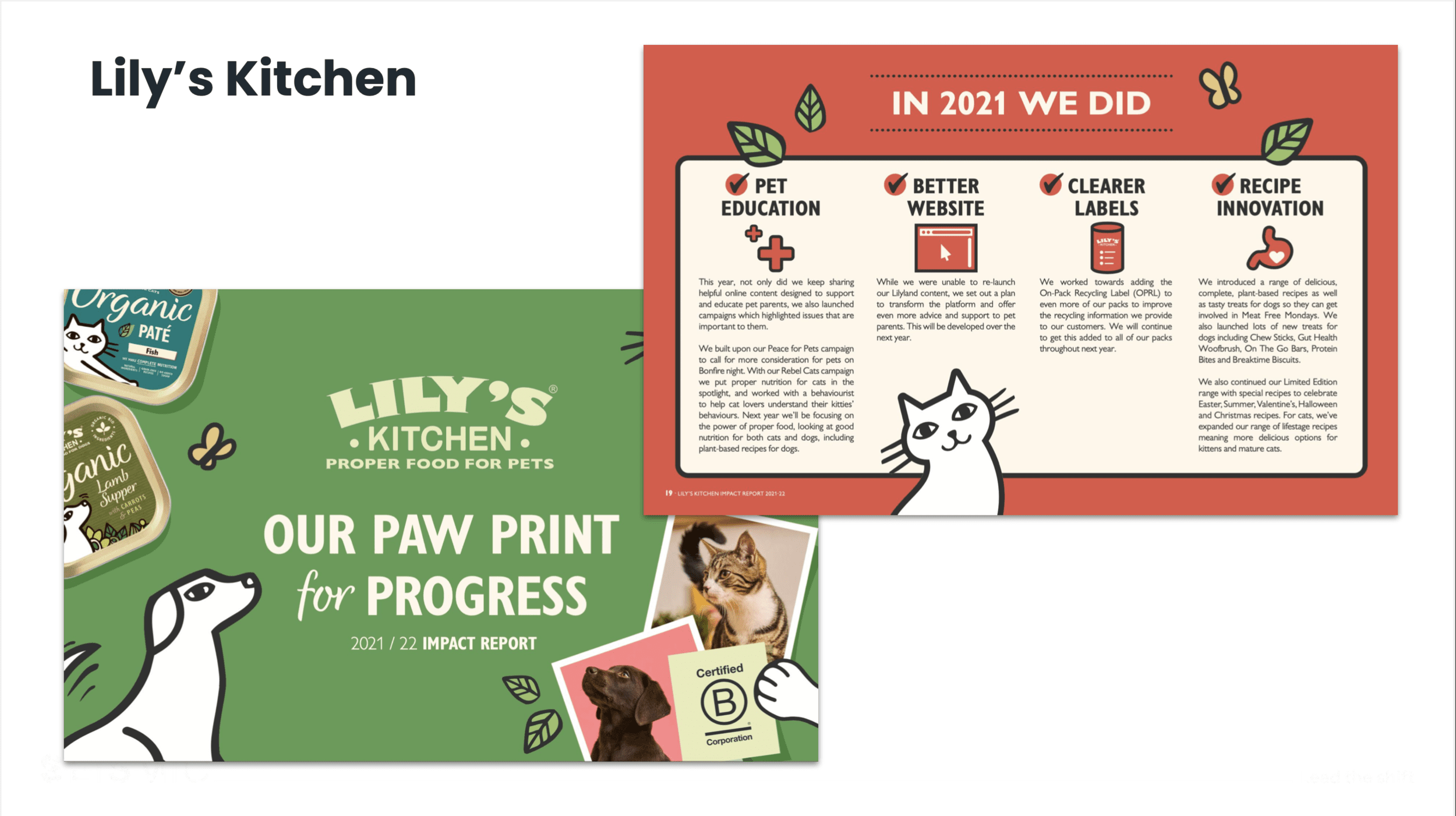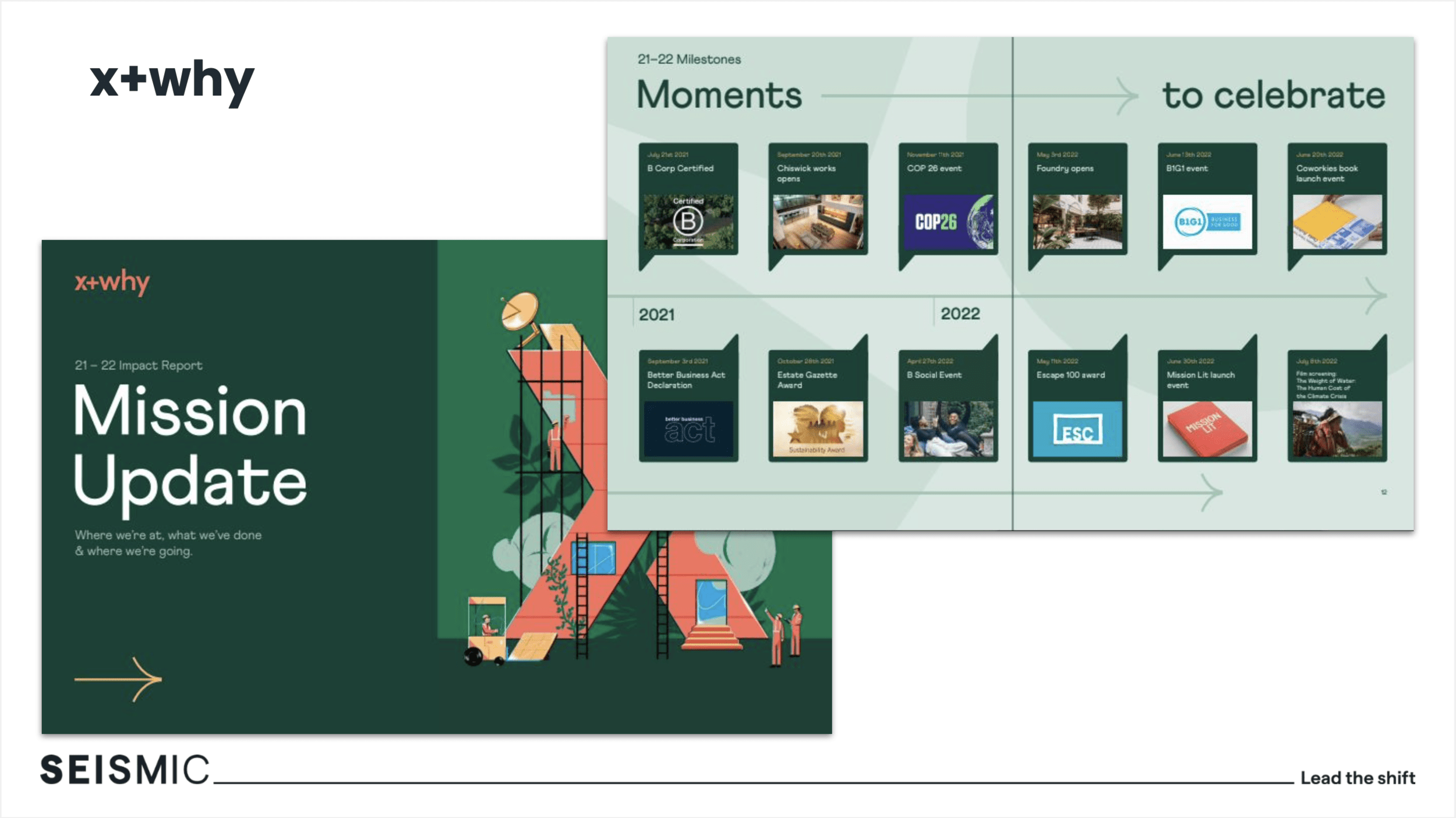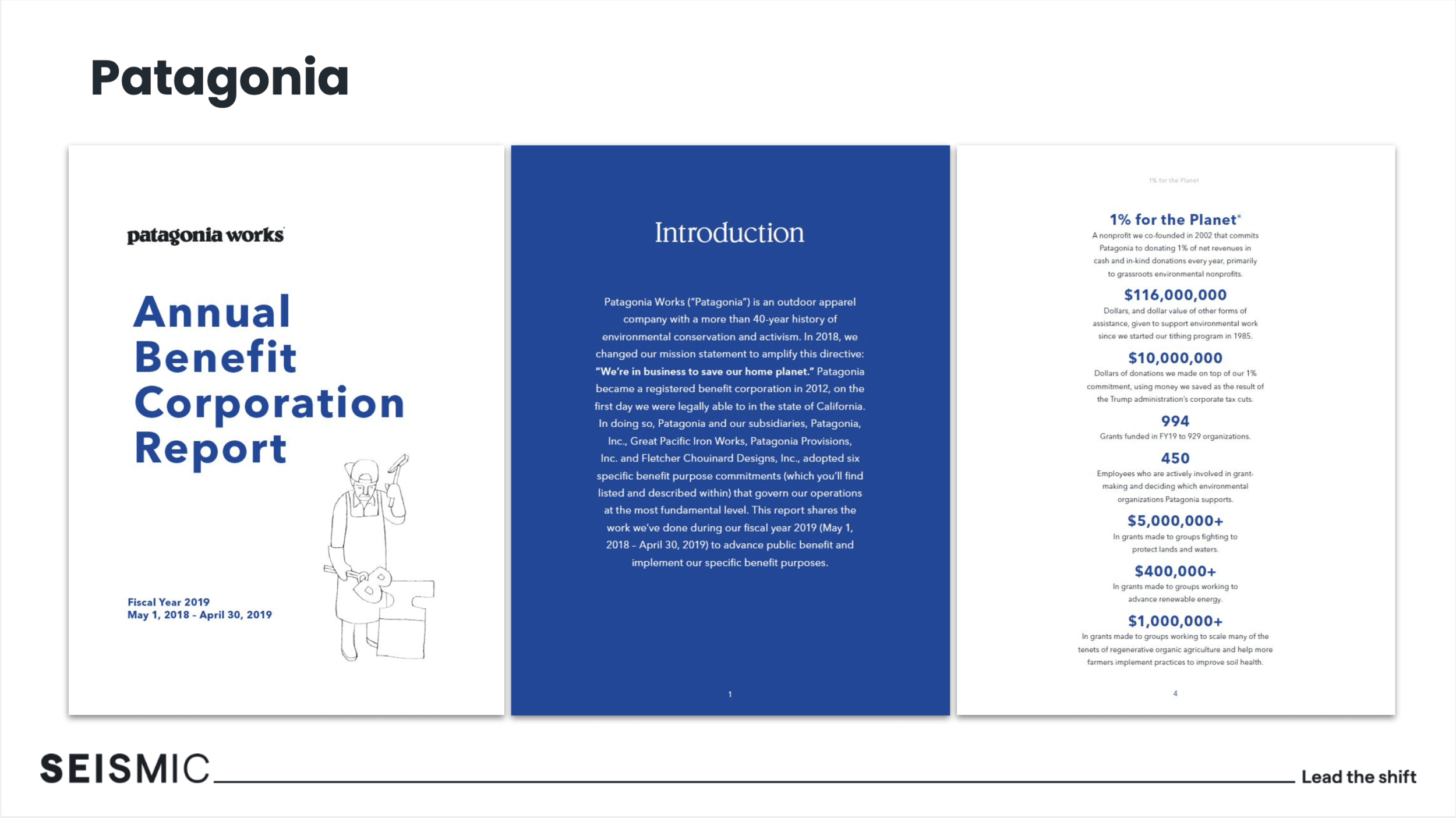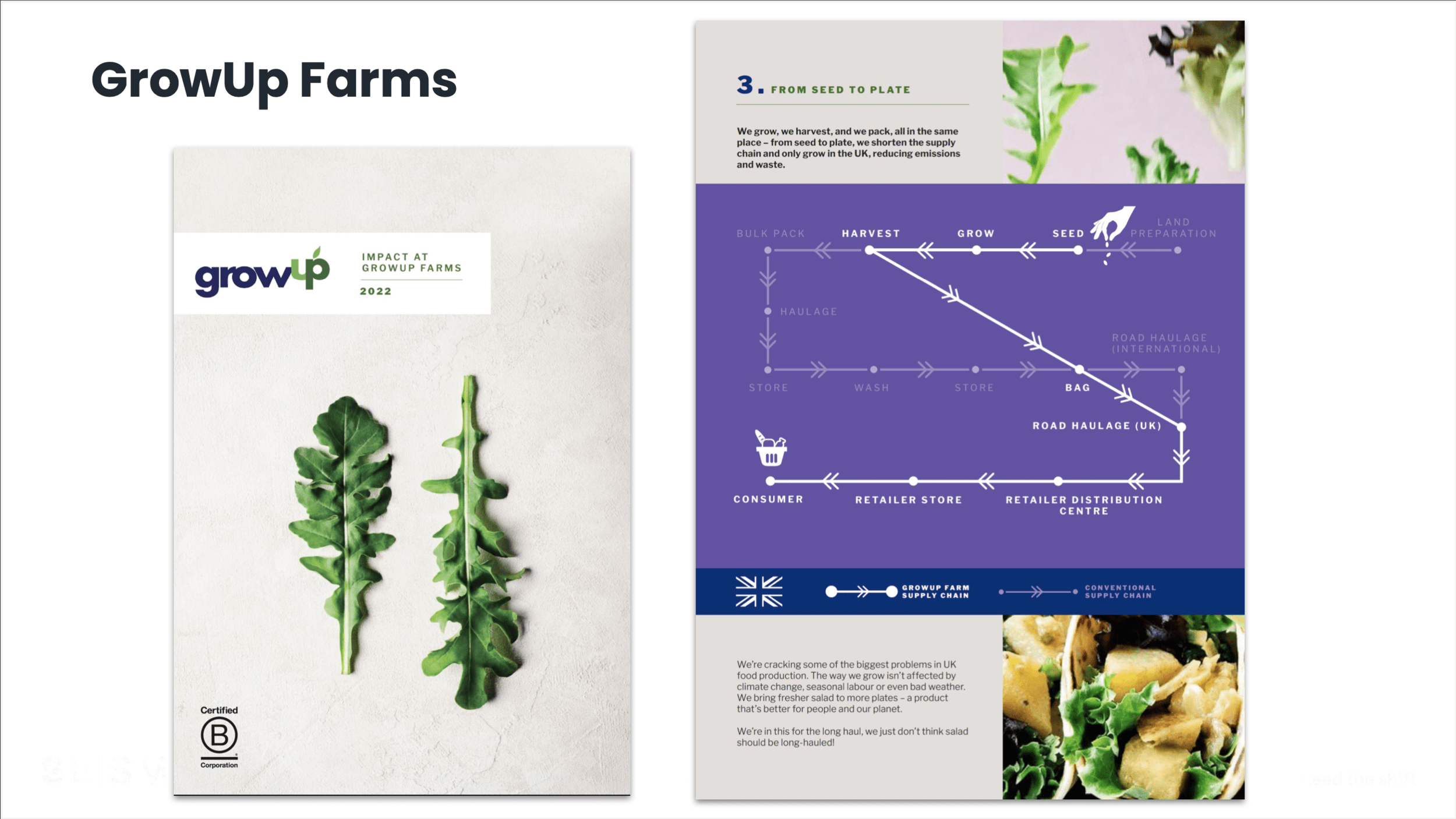
UK Certified B Corps are required to publish an annual Impact Report. But an Impact Report is more than just a glossy report. Your impact report is a powerful way to communicate your impact and share your company’s ESG story.
Impact Reports aren’t just for B Corps, either. Thousands of companies are now publishing Impact Reports to communicate their sustainability journey. An impact report articulates and documents factual achievements, what goals and targets are set and business growth year-on-year.
The benefits of writing an Impact Report
More and more legislation is appearing asking businesses to disclose their impact and ESG metrics, alongside the call for transparency from consumers and investors. An impact report is a powerful way to communicate both your current and intended impact to your stakeholders and the people your business depends on. Beyond getting ahead of the anticipated impact reporting requirements, there are a number of business benefits to creating an Impact Report today.
- Transparency and accountability. Publishing your impact report will give you the scope and space to hold your business accountable
- It helps define your ESG narrative. Sustainability is a complex issue and it allows you to think about, and publicly share, your personal ESG narrative
- It’s your annual external benchmark. By publishing your metrics and reporting on your impact on an annual basis, you are forcing your company to think about what you want share, by looking back on previous publications and tracking where you are year-on-year
- Shows tangible progress on your material issues. Showing tangible progress for your business, on the issues that are material to you and the issues that your stakeholders care about is what you should be reporting on.
- Shares best practice for better business. You are then setting the best examples and exposing things like ‘greenwashing’ and letting people know it exists.

B Lab UK Impact Report Requirements
UK certified B Corps are expected to publish an impact report every year.
To maintain certification, B Corps have to recertify every three years to demonstrate that they meet our rigorous standards. In the intervening years, every B Corp is required to write an impact report, to update on their progress and to continue to be accountable and transparent about their impact.*
*Source: B Lab UK
Examples of great impact reports
A lot of B Corps tell complex stories through a simple visual or infographic. They lead with facts and add contents, meaning they’re very streamlined and focused. Here are some excellent examples.
Impact Report insights from Lily’s Kitchen and GrowUp Farms

Samantha Crossley, Marketing Director at Lily’s Kitchen
“As the first certified pet food B Corp and a founding member of B Corp in the UK, we believe it stands by everything we set out to be from the beginning, to become a force for good. Our early impact reports were vital in summarising everything we did that made us a B Corp. That journey has changed and now it allows us to take stock as a business, setting targets as we continue to grow.
We use our B Corp community to learn from; we were producing very basic reports in 2015, and over the years our confidence has grown as a brand to develop our own passions, goals and targets. We now go beyond the BIA focus, and on to demonstrating how we’re improving our business and that feeds into letting people know what we’re genuinely achieving.
We’ve got better at putting hands up and saying ‘this is where we’re not doing so great, too’. Being honest comes with confidence. Because we know we keep trying and are always learning. We don’t want to fall into a rut.
The benefits allow us to celebrate our achievements and share the excitement with prospective recruits. It’s an org-wide project that ends with us being able to share with everyone, current employees included, about how their roles are developing the business. Which gives everyone the pride factor!”
“[Our impact report] journey has changed and now it allows us to take stock as a business, setting targets as we continue to grow.”
Gillon Dobie, Impact Director at Grow Up farms
“We have been growing with the highest possible environmental and social impact that we can. We became a B Corp in November 2022, with a score of 105. Our impact journey has been influenced by the manufacturing and energy sectors, as they are good at having their numbers fact-checked and being transparent. We wanted to stand up and hold the same responsibility – demonstrate to stakeholders that we are up for scrutiny each and every day.
The B Corp attitude is a ‘proof, not promises’ approach to all reporting and BIA reporting. It gives us a score based on what we have done, proven with evidence. It forced us to state real facts and that led to us writing our impact report very shortly after certification. It helped us pull together the content we wanted to share and the facts we knew we had. The BIA sets that material standard for you, which builds confidence.

The benefits for us have included being able to mitigate concerns from supermarkets and consumers about pesticides, seasonal labour and greenhouse gas emissions. Those questions can be answered through the report, and people can become aligned with who we are and what to expect. It supports fundraising efforts, it’s used internally to share growth with employees and our stakeholders can see our exact status and goals. We hope next year it will be combined with our financial reporting.
[The BIA] forced us to state real facts and that led to us writing our impact report very shortly after certification. It helped us pull together the content we wanted to share and the facts we knew we had. The BIA sets that material standard for you, which builds confidence.
Our top tips for a great impact report
1. Map out your structure
What is the report going to look like? Will you follow the route of BIA? Will you do it with stakeholders? Find a structure and stick to it.
2. Create a dashboard of your metrics
Work out what you want to measure, note them down and then draw those measurement numbers on a regular basis. Maybe quarterly, so that you’re not forced at the end of the year to gather it all again. Your dashboard will then hold you to account. It will show you the metrics, measuring what your impact is, and you can compare year-on-year.
3. Undertake a peer review
Look at others, in your industry and beyond. Seeing a number of different impact reports will help you gain clarity on what you like, don’t like, should include, etc.
4. External validation
This can be done by a partner, another B Corp or a company like Seismic which can do a thorough audit to check methodology, metrics and confirm you are doing what you say you’ll do.
Start communicating your impact authentically to your stakeholders
We partner with organisations to help them communicate their impact purposefully. We help bring your ESG strategy to life, engaging your employees, customers and investors in your impact journey. Get in touch.






